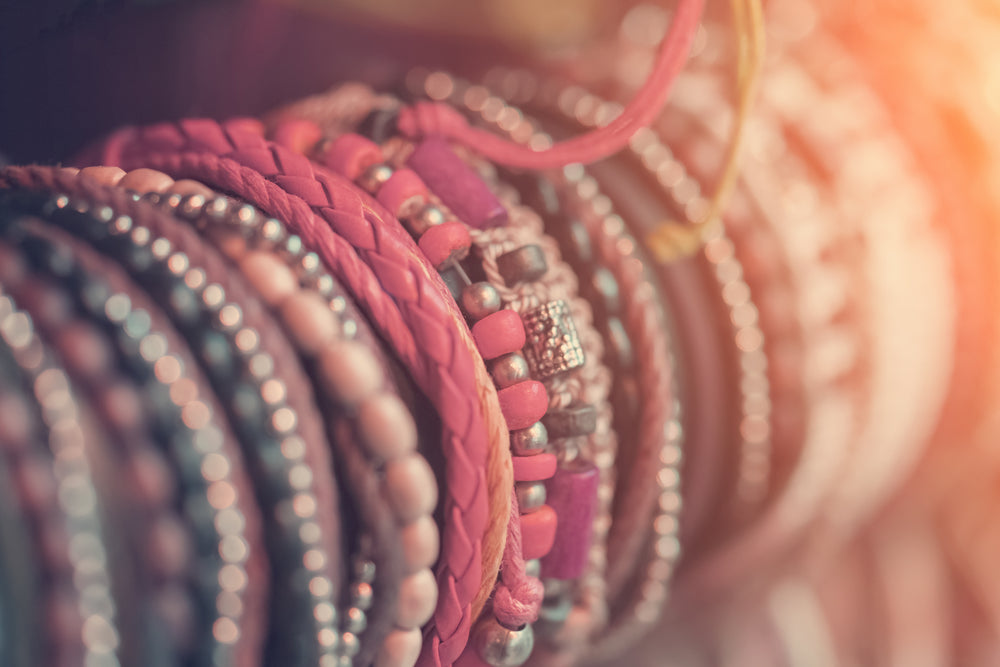
Sensitive Skin and Metals That Work for You!
Sensitive skin is a common complaint among men and women who make and wear jewelry. Most of the time, sensitive skin primarily relates to face products like makeup and skin care, but those with sensitive skin can also see reactions all over their body to things like detergent, fragrance, and of course metals!
Most people with metal allergies are allergic to nickel, but cobalt, copper, and chromium can be an issue as well. I’m going to talk about how to recognize if you have a metal allergy and how to find and make jewelry that’s still safe for you to wear!
Common Allergies
Nickel allergy is the most common jewelry allergy, but there’s plenty of other metals your skin have a bad reaction to.
If you have sensitive skin, you may want to be wary of:
NICKEL & STAINLESS STEEL- Like I said, Nickel is the number one allergy internationally. What you may not expect is that Stainless Steel can occasionally pose a problem for those with a nickel allergy because it contains trace amounts of nickel and iron. However, unless you’re super sensitive to nickel, you should be fine with stainless steel.
- Rose gold is a very trendy metal right now! However, if you’re allergic to copper, you might have to ditch this popular metal. Rose gold gets its signature pinkish hue by mixing gold and copper, so if you’ve ever had a reaction to copper, you may have to sit this trend out.
- Lots of inexpensive jewelry is made with plated brass, which is a mix of copper and zinc. If you’re allergic to either of these, cheaper plated jewelry isn’t going to work well for you. In time, the plating wears off and the brass will react with your sensitive skin. It’s better just to invest in pure metals. In silver jewelry, look for a stamp that says “Sterling 925” to indicate that it’s not plated. For gold, stick with 14k or higher to avoid any issues.
- This one may shock you! Lots of people think gold is automatically a safe metal for those with sensitive skin. However, gold is often alloyed with other metals like nickel (in white gold) or silver and copper (for yellow gold).
- To find a safe gold, check the karat (which is a rating of how pure the gold is). Like I said earlier, 14k and above is the safest because it means it’s at least half pure gold.
How to recognize an allergy
According to the Mayo Clinic, some of the symptoms you may see from a metal allergy are:
- Rash or bumps on the skin
- Itching, which may be severe
- Redness or changes in skin color
- Dry patches of skin that may resemble a burn
- Blisters and draining fluid in severe cases
The problem is, you may not always know what’s causing these symptoms! Of course, jewelry like bracelets, rings, and necklaces are one possible cause, but lots of everyday objects have metals like nickel and copper in them. Some places you can find these metals?
- Clothing fasteners
- Coins
- Electronics
- Keys
- Eyeglasses frames
- And lots more!
If you notice any sensitivity, itching, or rashes make sure to figure out if you’re coming in contact with any metals you’re allergic to and figure out how to avoid it!
Alternative Metals
Of course, just because you have sensitive skin or a meal allergy doesn’t mean you can’t wear or make jewelry! Lots of products these days are hypoallergenic, meaning they won’t cause a reaction.
Depending on your allergy, look for metals like nickel-free stainless steel, surgical-grade stainless steel, titanium, 18-karat yellow gold, or nickel-free yellow gold and sterling silver.
If your allergy is very extreme, you can even look for or make jewelry with no metal at all! Get creative with materials like leather, cloth, or plastic.
And of course, if you need any help at all finding the right metal for your skin, just head in to Chevere Bead and ask! I’m always happy to help, and I make it a priority to stock hypoallergenic jewelry supplies.
